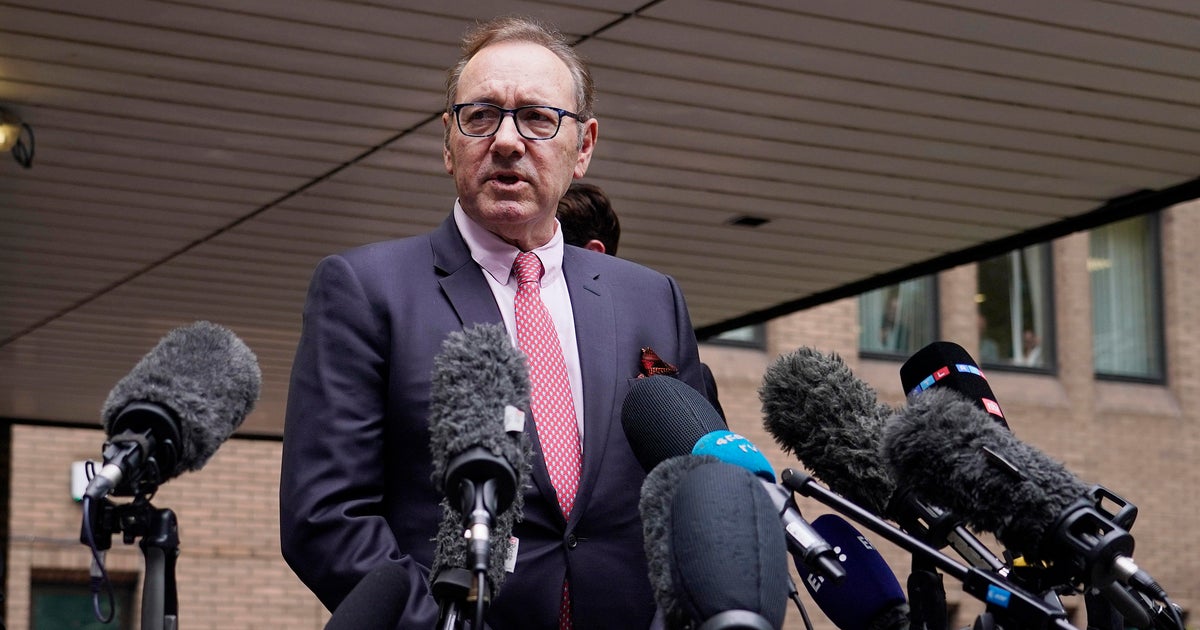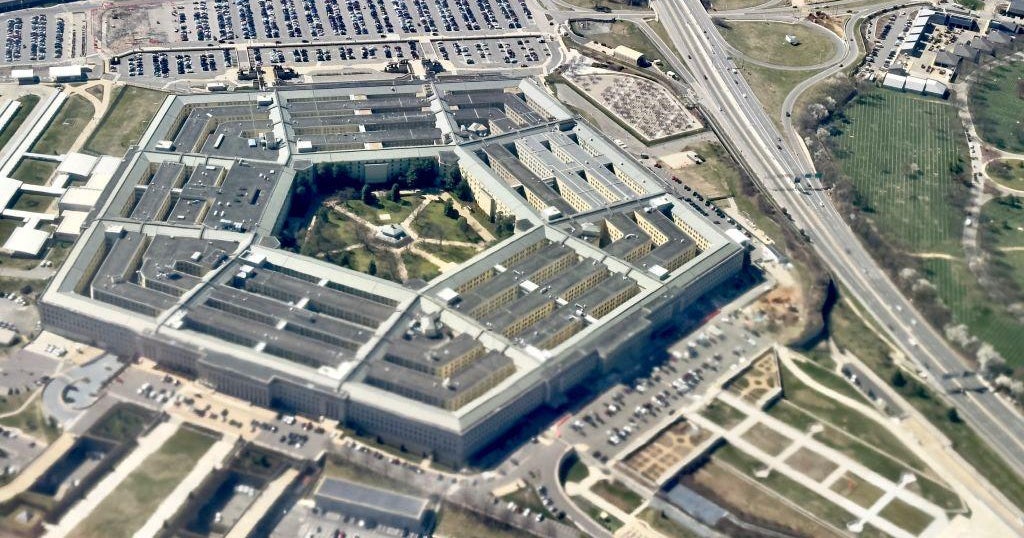Biden COVID adviser Dr. Julie Morita on anti-Asian hate and racism's role in pandemics
A spike in assaults against Asian Americans nationwide converging with the ongoing coronavirus pandemic has further exposed health inequities and simmering sentiments of racism over the past year.
In a report released last week, the group Stop AAPI Hate said it had received nearly 3,800 reports of hate incidents, including verbal harassment, shunning and physical assault, over the past year.
With few concrete legislative answers to the problem, health experts and patients alike are left wondering how the U.S. should address violent crimes amid a global health crisis.
Here's our Q&A with Dr. Julie Morita, a member of President Biden's COVID-19 Advisory Board and executive vice president of the Robert Wood Johnson Foundation.
Q: The shooting in Atlanta last week was shocking, yet almost predictable, as incidents of racism toward Asian Americans have been flaring throughout the pandemic. How did that news impact you, as an Asian-American woman?
First, I feel a deep sadness — for the victims and their families, for all Asian Americans, and for our nation. We've been watching, for the last year really, disturbing incidents of racism across the United States. We cannot dismiss these as merely isolated cases, but rather acknowledge that this is a disturbing trend that has spread alongside this pandemic.
In the past, my own inclination — and I think this is the case for many other AAPI (Asian Americans and Pacific Islanders) people — might have been to keep my head down in my work and my life and to move on. We can't do that anymore. This will not stop unless and until we finally make it a national priority to address the root problems that divide us, that marginalize people of color, and that allow racism to fester.
This will not be easy, and it will not happen overnight, but merely hoping this will go away is not an option. That work must begin with opening our minds and hearts, respecting and listening to people of all backgrounds and faiths, and understanding perspectives and experiences that are different from our own. That's the very least each of us can do.
Q: You wrote nearly a year ago that hatred toward Asian Americans could have larger impacts on people's health. What role has racism played in this pandemic?
There is overt racism — such as the incidents against individuals and communities — and then there is systemic racism that has created the conditions in which people of color have fewer choices, fewer opportunities and more challenging lives and circumstances. The former plays out in real time, the latter over generations. Both have played leading roles in this pandemic.
We've seen from the earliest days of Covid-19 how Black and Brown communities have suffered disproportionately—both in health impacts and economically. The number of cases and the number of deaths tell one story, but the losses of jobs and income quickly became a second blow to many families, particularly those in occupations that don't provide some of the basic supports that people need, whether paid family and sick leave, or health insurance. We knew these vulnerabilities existed before the pandemic, and we saw how our frayed social safety net was giving way during it. The life expectancy numbers released a few weeks ago showed the impact quite starkly: Black Americans lost 2.7 years, Hispanics 1.9 years, and whites 0.8 years.
We also know—as I wrote last April—that racist incidents can have direct impacts on health, contributing to heart disease, respiratory illness and other chronic diseases. Research has shown that even subtle slights against an individual or group can impact health. As this has been studied and as our society has, over time, paid more attention to disparities and to the many factors that influence health in communities of color, we are gaining a new understanding of the impact on health and the challenges to address. This will be a journey, though, and we will need a concerted and sustainable effort to address our embedded inequities.
I wish I could say with certainty that the racial reckoning of the past year will lead this nation to take on racism and bigotry and hate directly and unequivocally. But as the daughter of parents who spent years, as children, in Japanese internment camps during World War II, I understand that progress on these issues is not just a challenge for their generation or mine, but for my children's generation as well. I am ever hopeful that we will make progress, and future generations will continue our efforts to make us a more tolerant nation.
Q: History is replete with examples of racism flaring during public health crises such as this pandemic. Why is that, and how can we as a nation do better?
During times of crisis, human nature leads people to ask the question, "Why?" — and ultimately to assess blame. Fear during these crises often turns to anger, and this can lead to the scapegoating and then race-blaming that we've seen in the past year. Amid all of this, violence is never far away.
The global pandemic in 1918 itself is a case study in racism during a public health crisis, from the naming of the pandemic as the "Spanish flu" — it didn't originate in Spain, after all — to the way communities of color were treated during it. In my hometown of Chicago, for instance, Blacks were blamed for the initial outbreaks during the 1918 pandemic, as existing prejudices and bigotry simply found a new outlet. Even today, we don't know how many Black people died in the United States during the 1918 pandemic because—to put it bluntly—those in power did not care. Blacks were largely left to fend for themselves a century ago, a reality that is reminiscent of a very different natural disaster—Hurricane Katrina—in 2005 in New Orleans.
This is a pattern we've seen throughout history: The origin of a health crisis often invites racism, and the very response to crises is too often shaped by systemic racism. Who is impacted by a public health crisis can often determine how urgent and robust the response will be by those in power. We've seen this time and again in the last 20 years, from Katrina to the Ebola outbreak in West Africa to Hurricane Maria in Puerto Rico.
We can do better as a nation by acknowledging our history and by beginning to chip away at the failed systems and institutional, and individual, biases that have allowed this to persist.
Q: What is the connection between systemic racism and the mistrust around the Covid-19 vaccines and the medical establishment in general?
This again comes back to our nation's history. Trust is something that is earned, and Black Americans in particular have been mistreated by our health systems for centuries. We know of the horrors of Tuskegee, and we know that even the medical schools that produced the foundation for our health systems — through research and in clinics — treated people of color differently. The Tuskegee experiment began nearly 100 years ago, but the racism and discrimination that allowed it to happen have not abated. Even today, the health outcomes for people in communities of color are impacted by implicit bias and structural racism. Our health systems now still bear the scars of our past.
When this is our history — and importantly, when it is an individual's lived history — we can't expect the communities that have been mistreated by our nation's institutions to suddenly accept, without question, vaccines that emerge from this power structure — especially when those vaccines were developed with unprecedented speed.
When I was commissioner of the Chicago Department of Public Health, I knew that whether it were a vaccine rollout or other public health interventions, we needed to work within a community — whether through community organizers, faith leaders or other trusted voices — to engage with the people we sought to serve. It is no different today when we consider vaccine trust issues in many diverse communities that have concerns and questions that are altogether different. What's most important is that we encourage people to ask the questions they have, and that we help bring understanding to how these COVID-19 vaccines came to be, why they are safe, and why it's in everyone's best interest to get inoculated. But we must meet people where they are and engage them with respect and patience.
Q: What has the coronavirus pandemic revealed about public health in America, whether our strengths or our weaknesses?
On one hand, I think about the earliest days of the pandemic, and how our first responders rallied to the cause. I remember how the medical professionals — doctors, nurses and clinical staff — put themselves and their families at risk to treat COVID patients, often during round-the-clock shifts, at a time when we knew very little about this virus. I can still see the mask imprints on exhausted faces and hear the applause from balconies. For fleeting moments, it felt as though we were all in this together. Consider, too, the historic accomplishment that we have not one, but multiple safe and effective COVID-19 vaccines in just a year. I still have trouble conceiving of all that it took for this to happen. I'm incredibly grateful for the COVID vaccine that I received just recently and all that it represents.
At the same time, look at the frailties of our social safety net. Thankfully, lawmakers have poured resources into the areas of need — with additional jobless benefits, nutrition support, housing support and eviction moratoriums — during this health and economic crisis. The American Rescue Plan Act, in particular, includes historic investments that are projected to reduce the nation's poverty rate considerably this year. But the vulnerabilities that required this infusion of support have been there for far too long. The short-term supports during the pandemic must become permanent policy prescriptions.
Millions of Americans still don't earn a living wage or have comprehensive health insurance. Paid sick and family leave are too often luxury benefits for the few. Affordable child care is a distant dream for too many families in too many communities, with economic impacts that play out for generations. Access to fresh and healthy foods and good schools still depends on ZIP code and, too often, is determined by race. We saw during this pandemic that the nations that had better social safety nets going into the pandemic were better positioned for what was coming.
However, every crisis really does provide an opportunity for reflection and for a better future. These moments tend to show the best and worst of humanity, and this pandemic is no exception. But I remain ever hopeful that we can overcome today's challenges and lay the groundwork for a future in which every person — no matter the color of their skin, their gender, national identity or ZIP code — can live the healthiest life possible and thrive.



